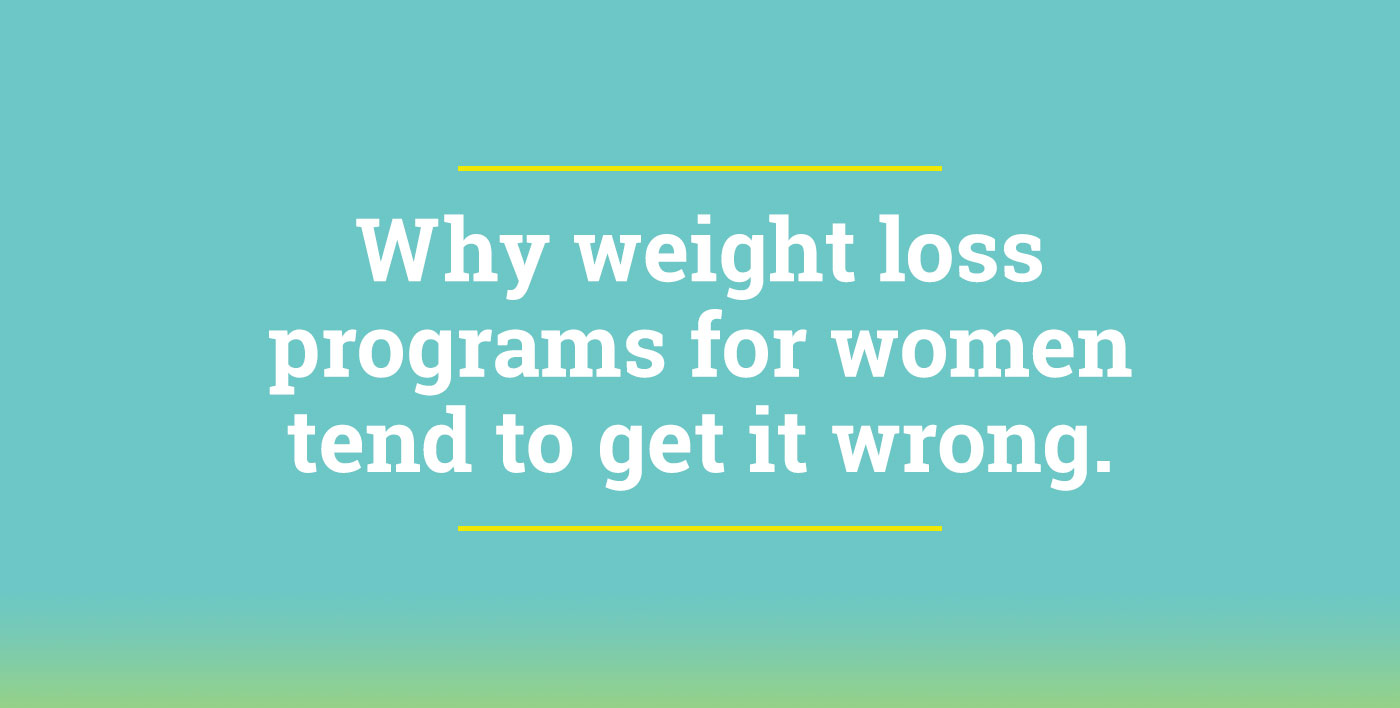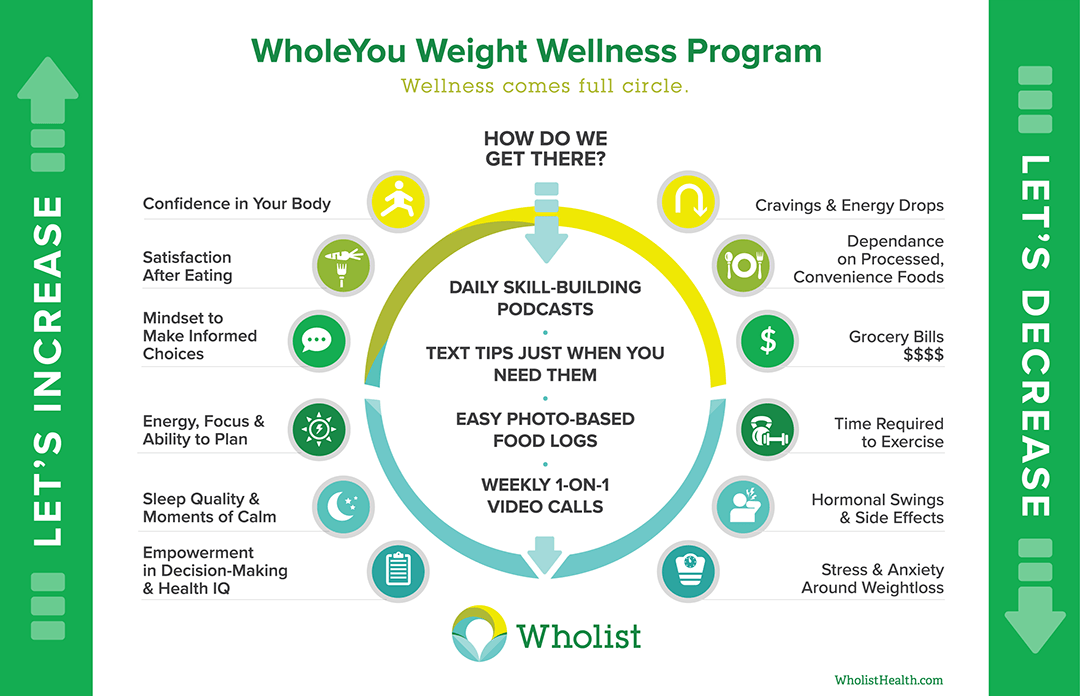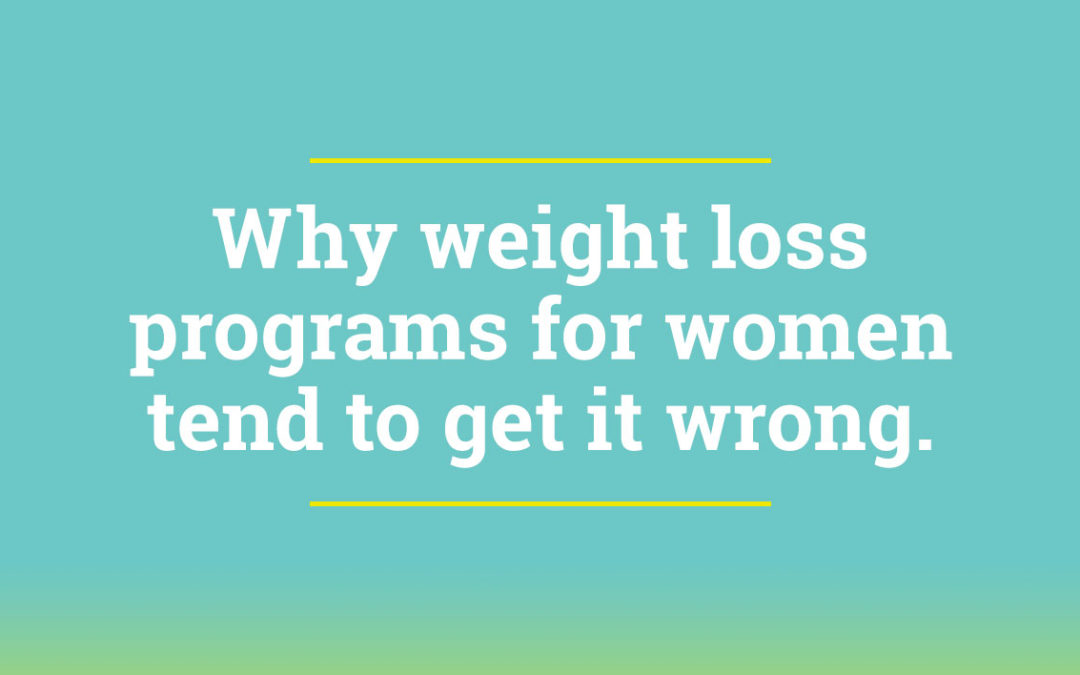Women’s weight loss programs should be about choices, not limitations.

Conversations about weight loss are tied to a strange concept — metacognition.
Why does that matter to you?
Metacognition is the awareness and understanding of one’s thoughts and mind frame. This has a significant impact on the subject of “dieting” and is why traditional weight loss programs for women can maybe miss the mark.
We need to focus on why we make decisions so we can correct behavior, not calories.
This concept is backed up within the medical community and literature.
How? Research on lifestyle medicine.
What is lifestyle medicine?

Let’s look at a couple definitions of lifestyle medicine.
First, from the American College of Lifestyle Medicine:
Lifestyle medicine uses evidence-based lifestyle therapeutic approaches to prevent, treat, and oftentimes reverse lifestyle-related chronic disease. The lifestyle medicine approach includes: a predominantly whole food, plant-based diet; regular physical activity; adequate sleep; stress management; avoidance of risky substance use; and use of other non-drug modalities that promote health and prevent disease.
Self-care and self-management are important elements of lifestyle medicine, according to the Lifestyle Medicine textbook by Garry Egger.
As discussed in the book Foundations of Lifestyle Medicine, lifestyle medicine in daily life is straightforward:
Intensive therapeutic lifestyle change programs encourage drastic changes in one’s daily routine, including habits around sleep, diet, physical activity and stress management. The program is usually administered in a group setting, and it always involves a multi-modality team.
Multi-modality teams may include a provider, pharmacist, dietitian, wellness coach, condition management nurse, physical therapist, etc.
It’s holistic. That’s what we’re all about.
To take that one step further, though, is to understand that this is a field of medicine designed to treat the cause.
As stated in the The Lifestyle Medicine BOARD REVIEW MANUAL, “since most modern diseases are caused by lifestyle, lifestyle changes must be part of the cure… Treatments are long term. A provider acts as both a medical expert and a coach. Lifestyle medicine is cost-saving, unlike most non-lifestyle medical services.”
There’s research to prove that point about modern diseases.
The 10 leading causes of death in the U.S. were significantly lifestyle related, according to a paper published by the Journal of the American Medical Association Network in 2010.
Those being …
- Heart disease 633,842 at 31.5%
- Cancer 595,930 at 29.6%
- Chronic lower respiratory diseases 155,041 at 7.7%
- Accidents (unintentional injuries) 146,571 at 7.3%
- Stroke (cerebrovascular diseases) 140323 at 7.0%
- Alzheimer’s disease 110,561 at 5.5%
- Diabetes 79,535 at 4.0%
- Influenza and pneumonia 57,062 at 2.8%
- Nephritis, nephrotic syndrome, nephrosis 49,959 at 2.5%
- Intentional self-harm (suicide) 44,193 at 2.2%
Weight is just one factor in a series of decisions that could have lasting effects.
Let’s consider the typical approach to weight loss for a moment though.
Weight loss programs for women are historically diet-centric

Women’s weight loss programs have been, well, hit or miss.
Are all bad? No.
Are many questionable? It’s safe to assume so.
Society has become the victim of trends and fad diets. Celebrity endorsements, Instagram influencers, you name it — there tends to be a money trail.
Among them, are some consistent concepts and, unfortunately, a focus on calorie-counting.
What have we always been told? Calories in equals calories out, so if you don’t put out more calories than you take in, then you get fat. Move more. Eat less.
It’s as simple as that. Right? Well, the science of metabolism and energy expenditure is a bit more complicated than a binary approach like calorie counting.
Instead of creating a continuum of health consciousness, we develop a cyclical pattern of losing weight through extraordinary methods and then gaining it back once we revert back from the extreme dieting and exercise behavior.
Losing weight is moreso hormonal than a math equation of calories.
Consider the summary of a recent study published in Cell Metabolism:
“Insufficient responses to hypocaloric diets have been attributed to hormonal adaptations that override self-control of food intake.
We tested this hypothesis by measuring circulating energy-balance hormones and brain functional magnetic resonance imaging reactivity to food cues in 24 overweight/obese participants before, and 1 and 3 months after starting a calorie restriction diet. Increased activity and functional connectivity in prefrontal regions at month 1 correlated with weight loss at months 1 and 3.
Weight loss was also correlated with increased plasma ghrelin and decreased leptin, and these changes were associated with food cue reactivity in reward-related brain regions. However, the reduction in leptin did not counteract weight loss; indeed, it was correlated with further weight loss at month 3.
Activation in prefrontal regions associated with self-control could contribute to successful weight loss and maintenance. This work supports the role of higher-level cognitive brain function in body-weight regulation in humans.”
What’s going on in your head, habits, and hormones has a significant impact on weight outcomes.
We don’t need to list every fad diet and try to tear them down, because some do have scientific merit in certain areas, but the yo-yo eating behavior they can induce isn’t the best long-term decision.
This is a supporting element of the WholeYou™Weight Wellness™ program.
Let’s focus on weight wellness not weight loss
If we were to summarize some of the efforts within the program, there’s two key efforts:
- Increase: empowered and informed decision making, sleep quality, calmness, energy, focus, satisfaction after eating, confidence in your body
- Decrease: stress/anxiety with weight loss, hormonal swings, time needed for exercise, grocery bills, dependence on processed convenience foods, cravings, and energy drops
This infographic can help summarize the process to get program participants in the right state of mind with the right access to resources.

If you’d like to learn more about weight wellness, not just weight loss, I invite you to check out my free videos on Facebook and read about my WholeYou™ Weight Wellness™ program.



